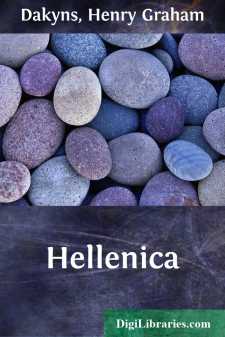Fiction
- Action & Adventure 180
- Biographical 15
- Christian 59
- Classics
- Coming of Age 5
- Contemporary Women 3
- Erotica 8
- Espionage/Intrigue 12
- Fairy Tales, Folklore & Mythology 236
- Family Life 169
- Fantasy 117
- Gay 1
- General 596
- Ghost 32
- Historical 808
- Horror 43
- Humorous 160
- Jewish 25
- Legal 4
- Medical 22
- Mystery & Detective 315
- Political 49
- Psychological 41
- Religious 64
- Romance 159
- Sagas 11
- Science Fiction 730
- Sea Stories 113
- Short Stories (single author) 537
- Sports 10
- Suspense 1
- Technological 8
- Thrillers 2
- Urban Life 31
- Visionary & Metaphysical 1
- War & Military 173
- Westerns 199
Classics Books
Sort by:
he first time Juba saw him, she couldn't help recalling the description of Ariovistus in Julius Caesar: Hominem esse barbarum, iracundum, temerarium. She unpinned the delicate laesa from her hair, for Terran spacemen are educated, and if they have a choice, or seem to have, prefer seduction to rape. Step. I. A soft answer turneth away wrath, leaving time for making plans. He caught the flower,...
more...
A DISCOURSE UPON THE ORIGIN AND THE FOUNDATION OF THE INEQUALITY AMONG MANKIND 'Tis of man I am to speak; and the very question, in answer to which I am to speak of him, sufficiently informs me that I am going to speak to men; for to those alone, who are not afraid of honouring truth, it belongs to propose discussions of this kind. I shall therefore maintain with confidence the cause of mankind...
more...
An Unprecedented Proposal "Well, why shouldn't we change it?" asked Mrs. Bateman, as she scooped out the grape-fruit that formed the first course at the P. W.'s regular monthly luncheon. "Change it? Change what?—How?" asked several voices at once. "The state of affairs in this city," pursued Mrs. Bateman calmly. "I have been thinking things over since I got home...
more...
Septimius Felton. The existence of this story, posthumously published, was not known to any one but Hawthorne himself, until some time after his death, when the manuscript was found among his papers. The preparation and copying of his Note-Books for the press occupied the most of Mrs. Hawthorne's available time during the interval from 1864 to 1870; but in the latter year, having decided to...
more...
by:
James J. Walsh
A new edition of this volume being called for, I take the occasion to place it under the aegis of the University of Notre Dame as a slight token of gratitude for the formal recognition of the work by the faculty of that institution, and bind this Notre Dame edition in the University colors, blue and gold. There is much more readiness at the present time to accept the conclusions with regard to the...
more...
by:
L. T. Meade
CHAPTER I. "You have kept us waiting an age! Come along, Bet, do." "She ain't going to funk it, surely!" "No, no, not she,—she's a good 'un, Bet is,—come along, Bet. Joe Wilkins is waiting for us round the corner, and he says Sam is to be there, and Jimmy, and Hester Wright: do come along, now." "Will Hester Wright sing?" suddenly demanded the girl who...
more...
by:
George K. Pattee
CHAPTER I PRELIMINARIES Argumentation is the art of presenting truth so that others will accept it and act in accordance with it. Debate is a special form of argumentation: it is oral argumentation carried on by opposing sides. A consideration of the service which argumentation performs shows that it is one of the noblest and most useful of arts. By argumentation men overthrow error and discover truth....
more...
BOOK IIB.C. 411. To follow the order of events (1). A few days later Thymochares arrived from Athens with a few ships, when another sea fight between the Lacedaemonians and Athenians at once took place, in which the former, under the command of Agesandridas, gained the victory. (1) Lit. "after these events"; but is hard to conjecture to whatevents the author refers. For the order of events and...
more...
CHAPTER I. Preface. These chapters were originally prepared for and used as a manual in the public schools of the District of Columbia. In a revised and amplified form they are now published as one of Johns Hopkins University Studies in History and Politics. The aim of this revision is to furnish assistance to students beginning the study of the history and practical workings of our political...
more...
by:
Mark Twain
CHAPTER XLI THE INTERDICT However, my attention was suddenly snatched from such matters; our child began to lose ground again, and we had to go to sitting up with her, her case became so serious. We couldn't bear to allow anybody to help in this service, so we two stood watch-and-watch, day in and day out. Ah, Sandy, what a right heart she had, how simple, and genuine, and good she was! She...
more...











